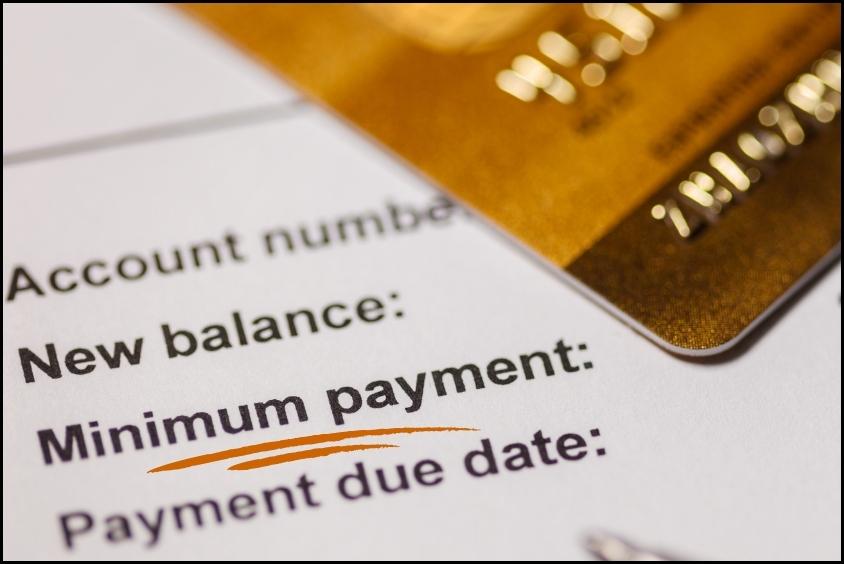Credit Cards have become a basic need for everyone nowadays. Using credit cards is easy, but using them responsibly might be challenging for some people. You need to keep a lot of things in mind in order to use a credit card wisely and get the maximum benefit out of it. The most important thing that you need to keep in mind is to make your credit card payments before or on the payment due date every month. Many people think that the minimum due amount is the only amount that you need to pay every month, but it is really true? Is paying only the minimum due amount on your credit card every month enough or it is a bad idea?

The minimum due amount is the least amount that you need to pay every month against your credit card statement balance. But, paying only the minimum amount has its own advantages and disadvantages as well. With this article, we are here to help you understand the answers to all the questions and the pros and cons of paying only the minimum amount due in detail. Keep reading to know more:
What Is the Minimum Amount Due?
As discussed above, the minimum amount due is the least amount that your credit card issuer expects to be paid by the cardholder every month. It is generally 5% of the total outstanding balance on your credit card. But, it doesn’t mean that you should only pay the minimum amount not more than that. You can only avoid the late payment charges by paying the minimum due, but the interest rate is still charged on the remaining outstanding balance. However, you can avoid a negative impact on your credit score by paying the minimum due, but you should always consider paying the full outstanding amount every month.
Pros & Cons of Paying The Minimum Due Amount
Pros
- You can avoid the late payment fee by paying the minimum amount in case you are unable to pay the full outstanding at that moment of time.
- Missing or delaying credit card payments can impact your credit score badly, but you can avoid this negative impact on your score just by making the minimum payment against your credit card.
Cons
-
- When you pay only the minimum due amount, your credit limit is reduced by the amount equivalent to the remaining outstanding balance on your credit card. So, you might be left with a lower credit limit, and utilizing a lot of it can affect your credit score in a negative way.
- If you pay the full outstanding by the payment due date, you can avoid interest charges, but if you pay only the minimum amount, the interest starts accruing on the remaining balance.
- The minimum amount keeps increasing every month if you don’t pay the full amount every month. The remaining outstanding balance from the previous billing cycle is added to the minimum amount of the next cycle, so it is always better to keep your dues clear.
- If you pay only the minimum due amount, you don’t get an interest-free period for your purchases in the next billing cycle. When all the dues are clear on your credit card, you get an interest-free period of up to 50 days for all the transactions you make, but the interest starts accruing on your purchases from the very next day when you haven’t paid the full outstanding amount in the previous month.
Bottom Line
Making only the minimum payment on a credit card has more disadvantages than benefits. So, you should always try to pay the full outstanding balance rather than paying only the minimum due. By doing this, you can not only avoid interest charges but you will also have your full credit limit to use. If you find yourself unable to pay the full outstanding balance by the payment due date, you can pay the minimum amount to avoid the late payment fee and then try to make the full payment as soon as possible. Clearing your dues every month is the most important thing that should be followed by credit cardholders in order to avoid debt consolidation.
If you have any further doubts regarding the information provided above, you can freely ask us in the comment section below!









